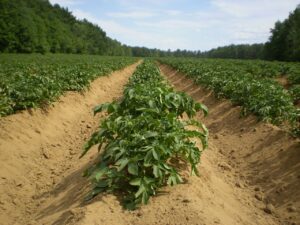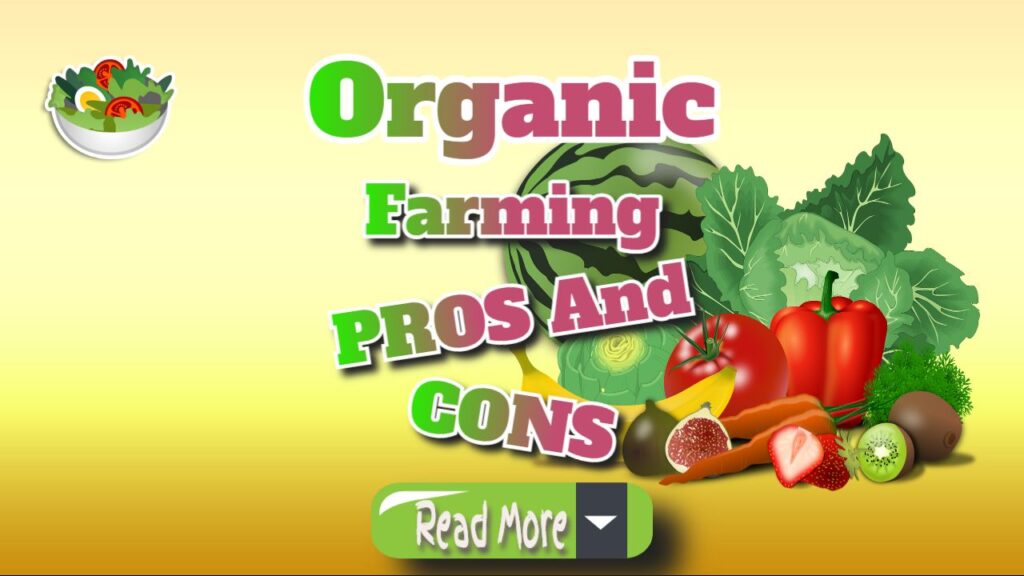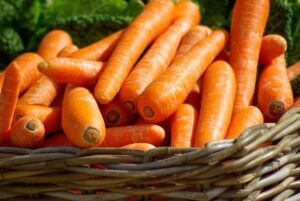Delve into Our Comprehensive Guide on Organic Farming Resources
- Understand the Essential Principles of Organic Farming
- Explore the Key Advantages of Adopting Organic Farming Practices
- Identify the Common Challenges Faced in Organic Farming
- Learn About the Vital Features and Significance of Organic Farming
- Comprehend the Fundamental Aspects, Benefits, and Principles of Organic Farming
- Discover How Supporting Organic Farming Enhances Your Health and Benefits the Planet
- Understand the Soil Association’s Perspective on Organic Farming
- See How Simone Thomas Wellness Advocates for Organic Farming
- Boost Soil Management and Conservation Through Organic Practices
- Investigate Recent Research on the Environmental Impact of Organic Farming
- Evaluate the Financial Aspects Related to Organic Products
- Gain Insights into the Advantages and Disadvantages of Organic Farming
Understand the Essential Principles of Organic Farming
Organic farming embodies a holistic approach to agriculture, centering on the use of natural methods for cultivating crops, raising livestock, and producing poultry. This sustainable farming system prioritizes techniques such as green manure, composting, biological pest control, and crop rotation. These practices not only enhance productivity but also protect the environment. By promoting natural resource cycling, organic farming maintains biodiversity and fosters ecological balance, which are essential for sustainable food production. Key techniques include the utilization of cover crops, the application of animal manure, and thoughtful crop rotation, all of which synergistically work to disrupt pest and disease cycles, improve soil fertility, and boost biological activity in the soil, ultimately nurturing a resilient ecosystem that supports healthy agricultural practices.
The core philosophy of organic farming revolves around managing ecosystems to enrich soil health while minimizing dependency on synthetic inputs. This involves mastering the principles of plant breeding to enhance resilience without genetic modification, employing effective pest control measures that exclude synthetic pesticides, and using natural fertilizers instead of their chemical counterparts. Innovative strategies promoted by organic farming advocates, including the no-till approach, showcase how these methods are accessible and effective for both home gardeners and commercial farmers alike, delivering environmental and economic benefits without the need for expensive equipment. This dedication to natural farming fosters a stronger connection to the land and its ecosystems, paving the way for sustainable and long-lasting food production.
The rise of organic farming has been significantly influenced by increasing consumer concerns regarding pesticide residues and the potential risks associated with genetically modified organisms (GMOs). Effective marketing tactics employed by organic advocates have been instrumental in shifting consumer preferences, prompting numerous farmers to make the switch to organic practices in search of greater profitability. However, this transition has also revealed instances of fraudulent labeling, where conventional farmers improperly label their products as organic. A critical challenge that remains is the establishment of reliable testing methods to differentiate between truly organic crops and those that have been treated with synthetic fertilizers, as there can be minimal differences in the basic biological characteristics of these plants.
Explore the Key Advantages of Adopting Organic Farming Practices
As the global population is projected to increase by billions over the coming century, the urgent challenge of sustainably feeding this expanding demographic has never been more pressing. Current agricultural practices, particularly those rooted in conventional industrial methods, place significant strain on our planet’s limited land resources, which are deteriorating at an alarming rate due to unsustainable farming. A report from National Geographic News indicates that food production currently utilizes nearly half of the Earth’s land surface, raising serious concerns about the depletion of remaining fertile areas. Addressing this critical issue necessitates a thorough examination of the strengths and weaknesses inherent in both modern industrial agriculture and organic farming methodologies.
A foundational principle of organic farming is the strict prohibition of synthetic chemical fertilizers, antibiotics, herbicides, and pesticides. The overarching objective of organic practices is to generate agricultural outputs—including fibers, grains, vegetables, fruits, and livestock—by employing the most natural and sustainable methods available. Organic farming excels in safeguarding our water and soil resources, maintaining ecological balance, and optimizing the use of renewable resources. However, it’s equally crucial to recognize the challenges that organic farmers may encounter. In the following sections, we will delve into the various advantages and disadvantages associated with organic farming practices, offering a well-rounded view of this vital agricultural approach.
As you deepen your understanding of organic farming, it is natural to ponder its significance and potential implications for the future. The increasing global population necessitates a shift away from traditional farming practices that depend heavily on chemical inputs, towards more sustainable techniques that prioritize ecological integrity. The detrimental effects of chemical fertilizers and pesticides on soil, air, and water quality highlight the urgent need for organic farming practices that advocate for ecological health and the development of non-toxic food alternatives for consumers.
Despite representing only about 1% of the world’s agricultural land, organic farming presents a significant opportunity to address one of humanity’s most pressing challenges: producing sufficient food for a projected population of 10 billion by 2050 without causing extensive deforestation or environmental harm. This assertion is backed by research conducted by my PhD student, Jonathan Wachter, which analyzed a diverse array of scientific studies comparing the long-term sustainability of organic and conventional agriculture. The published work, titled “Organic agriculture in the 21st century,” adhered to the four main sustainability criteria established by the National Academy of Sciences: productivity, economic viability, environmental soundness, and social justice.
Identify the Common Challenges Faced in Organic Farming
While organic farming is widely celebrated for its numerous benefits, it is also accompanied by several inherent limitations. Research conducted by CNN indicates that the yields of organic crops may be significantly lower—by as much as 25%—when compared to their conventionally grown counterparts. This yield disparity can be influenced by seasonal variations and crop types, but the intrinsic challenges of organic cultivation often result in slower growth rates. Additionally, the methods employed in organic farming frequently lead to higher consumer prices than those associated with conventionally produced food items.
The increasing consumer demand for organic products has dramatically transformed the market landscape. Once considered a niche market primarily catering to affluent or environmentally conscious individuals, organic food has now achieved widespread acceptance among diverse demographic groups. Organic farming practices, which eschew the use of synthetic fertilizers and pesticides, favor more traditional methods of pest and nutrient management, such as crop rotation, natural barriers, and ecological pest control measures that leverage nature’s own defenses.
Over the last two decades, the organic agriculture sector has experienced remarkable growth, with sales of organic food and beverages soaring from $1 billion in 1990 to an astonishing $26.7 billion by 2010. This phenomenal expansion has been driven by average annual increases ranging from 12% to 21% (OTA, 2011). Notably, by 2005, every state in the U.S. reported the presence of certified organic farms, collectively encompassing over 4 million acres (USDA-ers, 2008). Yet, with nearly 70% of American consumers now purchasing organic products (Hartman Group, 2008), many organic farmers are striving to keep pace with the rapid growth of their market, leading to a supply-demand imbalance.
The burgeoning population in areas like Florida is resulting in development pressures that negatively impact natural resources and contribute to environmental degradation. Embracing organic agriculture can help alleviate some of this environmental burden by promoting natural food production techniques. By reducing the use of pesticides and herbicides, organic farming supports diverse ecosystems that include various plants, insects, and wildlife (McIlwain 2004). Furthermore, organic practices are generally less energy-intensive and generate less waste in comparison to conventional farming methods. A study by Washington State University revealed that growing organic apples is approximately 7% more energy-efficient than traditional apple farming (McIlwain 2004).
Learn About the Vital Features and Significance of Organic Farming
Organic farming is characterized by its unwavering commitment to soil health and sustainability, ensuring that agricultural practices do not degrade the land or contribute to desertification. This restorative approach places significant emphasis on environmental stewardship and aims to preserve the health of our ecosystems for future generations. Sustainability is at the core of organic farming’s philosophy, guiding practices that enhance soil vitality and bolster biodiversity.
To keep readers informed about the latest trends in organic farming, Organic Farming Magazine serves as the UK’s leading publication, released up to three times each year by the Soil Association. Each issue offers valuable insights into current news, policy changes, and market trends, along with detailed technical articles and reports discussing the latest field trials and research in organic farming techniques. Topics covered include livestock management, horticulture, and various agricultural disciplines, providing a comprehensive overview of the organic farming landscape.
A crucial aspect of organic farming is the implementation of organic pest control, which completely avoids the use of chemical pesticides. This practice not only protects the integrity of the soil but also nurtures a healthier ecosystem. When executed effectively, organic pest control can sustain thriving crops for generations. Acquiring a thorough understanding of the underlying principles of organic pest control is essential for anyone interested in the domain of organic farming.
Organic fruits and vegetables are seeing rising demand at farmers’ markets, fueled by a growing public awareness of health and nutrition. Establishing a successful orchard requires careful planning and meticulous attention to detail. This resource offers critical information on developing optimal planting strategies while fostering a deeper connection with nature. It also discusses sustainable farming techniques alongside advanced methods like grafting various tree varieties. Additionally, it outlines the best species to cultivate, what to avoid, and key insights into biodiversity and pollination practices that enhance organic farming.
Comprehend the Fundamental Aspects, Benefits, and Principles of Organic Farming
While contemporary agricultural practices may offer certain advantages, the misuse of pesticides can result in toxic repercussions for plants, animals, and the broader environment. Organic farming emerges as a sustainable alternative that prioritizes the health of our ecosystems. In the United States, nearly 44% of agricultural imports are comprised of fruits, vegetables, wine, hops, and various specialty crops. This reliance on imports can lead to ethical dilemmas and social issues within farming communities, as some individuals may attempt to exploit labor forces to cultivate crops on their behalf.
Discover How Supporting Organic Farming Enhances Your Health and Benefits the Planet
Supporting organic farming offers numerous advantages not just for the soil and plants but also for the wider ecosystem, which includes animals and humans. Organic farming practices, as highlighted by Foam Organics International, provide a wealth of benefits that extend far beyond mere agricultural output.
It’s important to recognize that organic food generally comes at a higher price compared to non-organic alternatives. The benefits of consuming organic food go beyond taste and nutritional value; they may also reduce your exposure to antibiotic-resistant bacteria. Furthermore, organic products can be prepared and frozen without significantly diminishing their nutrient density. While organic food may not always be the most budget-friendly option, the production methods promote health and sustainability, making it a worthwhile investment for informed consumers.
Currently, organic farming accounts for only about 1% of the global agricultural landscape, highlighting a significant opportunity for expansion. This limited presence poses challenges not only for food quality but also for the stewardship of our land and planet. Organic farming techniques are essential in maintaining the soil’s organic composition, aiding in the mitigation of ongoing ozone layer degradation caused by pesticides and emissions from various agricultural machinery.
Organic milk exemplifies the myriad advantages of organic farming. Many individuals who are lactose intolerant may choose soy milk as an alternative; however, organic options often provide superior health benefits. Consumer preferences also influence the market, as many people find organically produced food to be more flavorful and satisfying. It’s noteworthy that the USDA mandates that at least 70% of ingredients in products labeled as organic must originate from organic sources. Concerns have been raised regarding synthetic additives in the food supply, which have been linked to serious health issues, including infertility, certain cancers, Parkinson’s disease, and endocrine and autoimmune disorders.
Understand the Soil Association’s Perspective on Organic Farming
The environmental consequences of synthetic fertilizers are profound; their runoff into waterways poses significant threats to aquatic ecosystems and overall water quality. In contrast, organic fertilizers do not leach from the soil as easily and positively contribute to soil structure. The Organic Trade Association reports that organic fertilizers can enhance biodiversity by up to 30% compared to their synthetic counterparts.
The Organic Farming Digest, published from 1946 to 1954, holds the distinction of being the first magazine dedicated to organic farming, produced by an agricultural association based in Sydney. This quarterly publication featured contributions from both Australian authors and international experts, covering a diverse range of topics related to organic farming and gardening. The publication later became the official magazine of the Living Soil Association of Tasmania, with its final issue released in December 1954.
According to the USDA Organic Agriculture Study Team, organic farming is defined as a production system that largely avoids or eliminates the use of synthetic fertilizers, pesticides, growth regulators, and feed additives. Instead, it relies on techniques such as crop rotation, biological pest control, animal manure, crop residues, and mechanical tillage to improve soil productivity and manage pests. Organic farmers aim to operate in harmony with nature, fostering biodiversity to create a balanced ecosystem rather than depending on artificial inputs.
The U.S. Department of Agriculture defines organic farming as an agricultural system that responds to site-specific conditions and integrates cultural, biological, and mechanical practices to promote resource cycling, support ecological balance, and maintain biodiversity. Essentially, organic agriculture prioritizes natural methods over synthetic approaches to cultivate healthy crops and nurture vibrant soils.
Boost Soil Management and Conservation Through Organic Practices
The quest for a sustainable and green environment has emerged as a global priority, with research indicating that organic agriculture can significantly contribute toward this goal. Long-term studies show that organic farming not only promotes ecological balance and biodiversity, but also supports biological cycles essential for environmental sustainability. The primary aims of organic farming include effective soil management and conservation, nutrient cycling, ecological balance, and the preservation of biodiversity. These practices play a crucial role in mitigating the effects of global climate change while positively contributing to environmental conservation initiatives.
As previously mentioned, pest control in organic farming heavily relies on crop management and biological control strategies. The prohibition of synthetic fertilizers and pesticides encourages the preservation of natural predators and beneficial insects, enhancing the overall health of the ecosystem. This elimination of harmful pesticides increases the diversity of crop pollinators and decreases pesticide residues in food products. Organic farms, managed with a focus on biodiversity, also cultivate environments where microorganisms thrive, resulting in improved soil fertility and enhanced ecosystem sustainability. Diverse cropping systems and the cultivation of hedgerows create habitats for beneficial insects and wildlife, thereby enriching biodiversity within organic farming systems.
Investigate Recent Research on the Environmental Impact of Organic Farming
1 January, 2021
Research has demonstrated that genetically modified organisms (GMOs) can negatively affect local biodiversity. While industrial agriculture provides consumers with access to a broader range of food options and promotes balanced diets, the introduction of GMOs has ignited considerable controversy among consumers. Understanding the implications of GMOs, along with the distinctions between GMO, non-GMO, and organic crops, is essential for making informed consumer choices and guiding agricultural practices.
Evaluate the Financial Aspects Related to Organic Products
The cost of organic food typically surpasses that of conventional produce, often by considerable margins. The organic food market lacks the well-defined pricing structures seen in other agricultural sectors, which can create challenges for specialty farmers competing in the marketplace. Many communities have countered this challenge by establishing food cooperatives with local farmers, allowing consumers to prepay for their organic produce, which they can then collect at the end of the growing season.
It is a well-known fact that organic products often come with a premium price tag—prices for organic items can be 50% to 300% higher than conventional alternatives. The labor-intensive nature of organic farming plays a significant role in these price variations. Despite this, organic products yield substantially higher returns on investment for both retailers and farmers. Consumers are increasingly willing to pay more for organically produced items, although the supply remains limited.
Additionally, organic food typically has a shorter shelf life compared to conventional products. For farmers, cultivating crops for the organic market entails heightened physical demands. While conventional farming often focuses on maximizing yields of specific crops, organic farming strategies emphasize minimizing off-farm inputs and external factors that may impact growth. Nevertheless, the environmentally friendly practices associated with organic farming significantly contribute to ecological balance and sustainability.
The development of organic farming practices by “Kusto Agro” highlights a growing commitment to expanding cultivated land and increasing crop diversity. In Europe, organic products have gained traction among consumers despite their elevated costs. This trend presents a lucrative business opportunity as the global market for organic products continues to grow at an annual rate of 10-15%. However, to compete on an international scale, obtaining the appropriate certification is essential.
While organic farming boasts numerous advantages, it is crucial to acknowledge its limitations and challenges. In the following section, we will explore the most significant pros and cons associated with organic farming practices.

Gain Insights into the Advantages and Disadvantages of Organic Farming
Written by Behind the Plough | Feb 13, 2019, | Agricultural Resources, Organic Farming
The ongoing discussion surrounding conventional versus organic farming continues to capture public interest. However, it is vital to acknowledge that both farming methods possess distinct advantages and disadvantages. Ultimately, the decision regarding which practices to adopt rests with individual farmers, who must evaluate their unique circumstances and aspirations.
While organic food often has a shorter shelf life compared to its conventional counterparts, producing crops for market can be physically demanding for farmers. Conventional agricultural practices may concentrate on cultivating specific, high-yield crops, while organic farming necessitates a more integrated approach that reduces reliance on external inputs. Organic farming techniques are inherently more eco-friendly, yet they also present their own set of challenges, particularly regarding the maintenance of soil quality and ecological balance.
Managing weeds, pests, and plant diseases in organic farming requires a comprehensive and integrated strategy. This systems-based approach involves utilizing a variety of tools and techniques rather than relying solely on one method, such as pesticide application. Known as Integrated Pest Management (IPM), this approach enhances the effectiveness of organic-approved pesticides while potentially reducing overall usage. IPM is not a new concept; integrated strategies have been employed for centuries, albeit without a standardized term.
At its core, organic farming embodies the principle of interconnectedness among soil, plants, animals, and humans. Its role in sustainable agricultural practices is to promote the health of both the
The Article Organic Farming: Key Pros and Cons Explained First Appeared ON
: https://ad4sc.com











Comments are closed